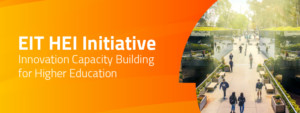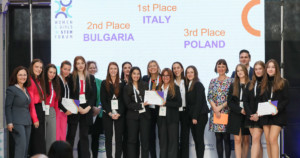Hard rock seismic methodology research course: practical aspects
The course provides an overview of the practical aspects concerning seismic methods for deep mineral exploration. The one-week fieldwork module focuses on hands-on training in seismic data acquisition and processing in a hard rock environment. The course location in central Sweden is an area that has been extensively surveyed with geophysical methods. It is complemented by a 2.3 km deep fully cored borehole that the seismic data can be compared to and which provides “ground truth”.
Students will gain experience in different aspects of seismic acquisition by a professional team of Swedish and German researchers. Later emphasis will be on processing the acquired data using a commercial seismic processing package that is in use by mining companies. At the end of the course, the novice will feel more comfortable in dealing with seismic data and the more experienced will have had the opportunity to discuss with experts various aspects of seismic acquisition and processing. Processing exercises will involve data that are acquired during the course, but also previously acquired data from the area.
3-9/10-2021: COSC-2 drill site, Mörsil, Sweden
Instructors: Chris Juhlin (CJ) and Bojan Brodic (BB)
Number of participants: maximum 8
Ph.D. points: 2 hp with a completed report
Prerequisites: Current Ph.D. studies in geosciences with knowledge of geophysics
How to apply: Send an e-mail with a CV and a letter (max an A4) stating why you want to attend to Chris Juhlin at christopher.juhlin@geo.uu.se
Overview
3/10: Arrival at the field site
4/10 AM: Introduction to the COSC-2 project and seismic acquisition (Classroom, CJ)
4/10 PM: Practical work in the field (Field, CJ, BB)
5/10 AM: Live seismic data acquisition (Field, CJ, BB)
5/10 PM: Data handling and distribution (Classroom, CJ)
6/10 AM: Live seismic data acquisition (Field, CJ, BB)
6/10 PM: Seismic data processing (Classroom, CJ)
7/10 AM: Seismic data processing (Classroom, CJ)
7/10 PM: Seismic data processing (Classroom, CJ)
8/10 AM: Report writing (Classroom, CJ)
8/10 PM: Report writing, course evaluation (Classroom, CJ)
9/10: Transport back to Uppsala
Introduction
- Why hard rock seismic
- Expected results
- Case histories
- COSC-2 project
- Field equipment
- Plan for data acquisition
Fieldwork
- Installation of geophones and cables
- Seismic data acquisition with vibrator source
Seismic data processing
- Downloading data and preparation of geometry information
- Loading data into seismic processing software
- Data analysis and filtering
- First arrival picking
- Refraction statics corrections
- Normal moveout corrections and stacking
- Residual statics corrections
- Post-stack migration and depth conversion
Reporting
The report will be written with the following components
- Introduction
- Data acquisition
- Data processing
- Results
- Discussion of results
- Conclusions
Course evaluation
Students will do a short evaluation of the course
Practical matters
Students should arrive in Uppsala, Sweden by Sunday morning, 3/10. Transport will be arranged to the field site via cars (about a 6-hour drive) on Sunday afternoon. Accommodation will be at a hostel close to the site (Sällsjögården). Breakfast food will be supplied, but students will need to arrange their own lunches and dinners. There are well-stocked supermarkets close to the site where food can be purchased. Transport back to Uppsala will be arranged for Saturday, 9/10.
Costs
Students need to cover their own transport costs to Uppsala. Transport will be provided from Uppsala to the field site. Accommodation, including breakfast, will be covered by the research school.
Find out more about the course.




